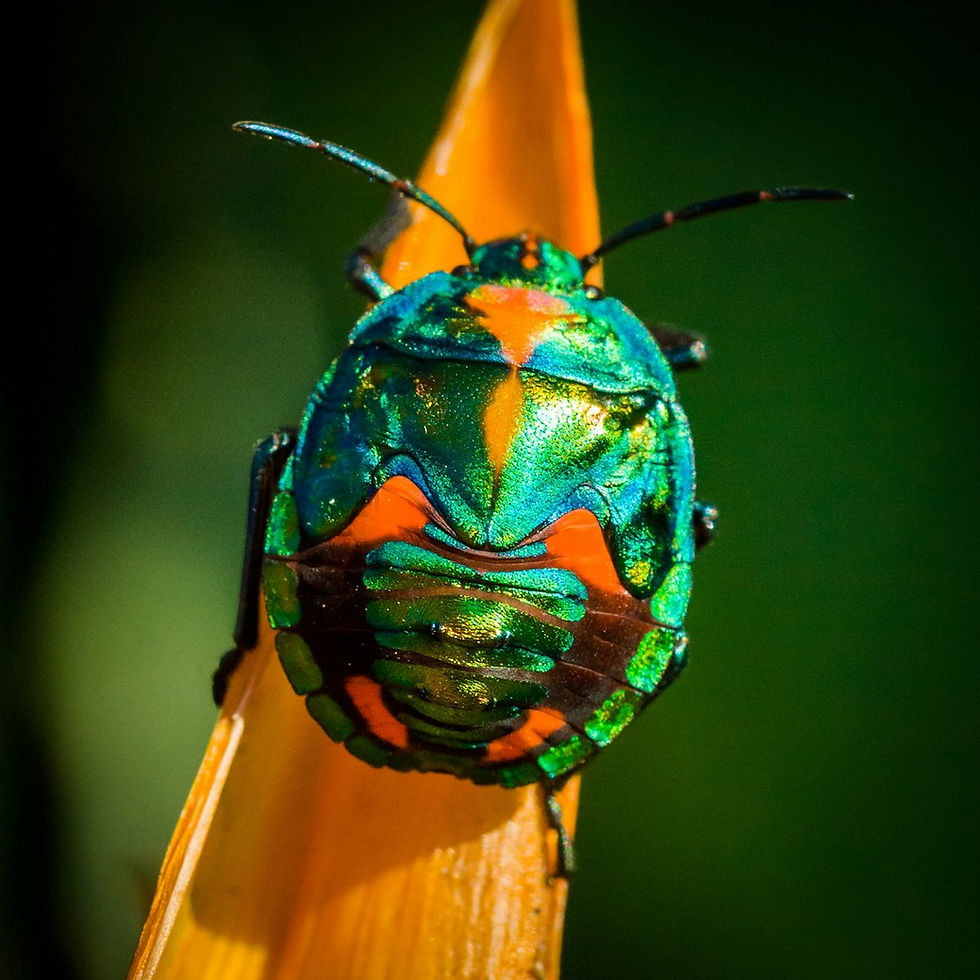Entomophobia Test: Do You Have a Fear of Insects?
- Emma Calden
- Aug 7
- 3 min read
Updated: Sep 4

Entomophobia, also known as insect phobia, is an intense and irrational fear of insects. People who suffer from entomophobia can experience a wide range of emotional and physical reactions, from mild discomfort to extreme anxiety and panic attacks. The fear of insects can interfere with daily life, leading to avoidance behaviors and affecting both personal and professional relationships. Common triggers include seeing, hearing, or even thinking about insects.
If you find yourself experiencing anxiety, fear, or avoidance behaviors in the presence of insects, it could be a sign that you have entomophobia. This test can help you evaluate your fear levels and determine if your fear of insects is impacting your mental well-being. By answering the following questions, you’ll gain insights into how your fear of insects may be affecting you and what steps you can take to manage it.
Instructions:
For each question of the entomophobia test, please select the answer that best reflects how you typically feel or behave in relation to insects. There are no right or wrong answers; the goal is to assess your fear and how it affects your daily life. The results of this test will provide a general overview of your entomophobia and can help you identify areas where you may need support or treatment.
Scoring and Interpretation:
Minimal Fear (0–20 points): If most of your answers reflect little to no anxiety or avoidance related to insects, it suggests that your fear of insects is minimal, or you may not experience entomophobia at all. You might feel uncomfortable with insects from time to time, but it doesn’t significantly affect your daily activities or overall well-being. This level of fear is common and manageable, and you may be able to cope with insects without much distress.
Mild to Moderate Fear (21–40 points): If your answers indicate that you experience moderate levels of anxiety, avoidance, or discomfort in the presence of insects, you may have some level of entomophobia. Your fear might be triggered in certain situations, such as when encountering insects indoors or outdoors. This level of fear may not interfere greatly with your everyday activities, but it could cause occasional distress or lead you to avoid places or activities where insects are common. At this stage, learning coping mechanisms such as relaxation techniques or gradual exposure may help manage your fear.
Severe Fear (40–60 points): If your responses reflect a high level of anxiety or avoidance behavior regarding insects, you may be dealing with a more serious form of entomophobia. At this stage, your fear is likely affecting your ability to go about your daily life in a comfortable and efficient manner. You may avoid certain environments or activities entirely, or experience significant distress and panic when encountering insects. If this is the case, it’s highly recommended to seek professional help. Cognitive Behavioral Therapy (CBT), exposure therapy, and relaxation exercises are often highly effective in treating phobias.
Extreme Fear (61-80 points): If your answers suggest an intense and pervasive fear of insects, it could indicate that you have a strong phobia that may significantly limit your quality of life. The fear may be so severe that it influences not only your outdoor activities but also your ability to enjoy certain indoor environments. You may feel constant anxiety about encountering insects and engage in avoidance behaviors to an extreme degree. At this level, seeking the support of a mental health professional is essential. A tailored treatment plan, which may include therapy, medications, or other interventions, can help you address and reduce the impact of your phobia.
What to Do Next
If your score indicates that you may have entomophobia, consider seeking professional help. Cognitive Behavioral Therapy (CBT) and exposure therapy are both proven techniques for overcoming phobias, helping you gradually face your fear of insects in a safe and controlled environment. Additionally, practicing relaxation techniques, such as deep breathing or mindfulness, can help reduce your overall anxiety levels.
Read our articles about treatments for entomophobia and virtual reality therapy for treating entomophobia.
Phobias are treatable, and early intervention is key to minimizing their impact on your life. Consulting with a therapist or counselor who specializes in anxiety and phobias can provide a more accurate diagnosis and guide you toward effective treatment options.
Remember, you don’t have to face your fear alone. With the right help, it’s possible to regain control over your fear and improve your quality of life.
Conclusion: Entomophobia Test
This test is a helpful tool for evaluating your level of fear toward insects. If your results suggest that you have entomophobia, or your fear is interfering with your daily life, don’t hesitate to seek professional help. Treatment is available and can lead to significant improvements in managing your fear. It’s important to address your phobia early to ensure you live a full and comfortable life, free from the limitations that come with extreme fear of insects.
.png)










































